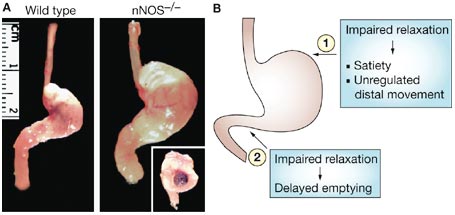|
Gastroparesis and DiabetesThe nerves in the stomach called the vagus nerve, controls stomach emptying in the normal person. This is done without any problems unless there is damage that has taken place within the nerves. In gastroparesis, this mechanism does not work properly, and this means that the movements of food that should be digested, is either totally stopped, or slowed down. 
If the blood glucose levels go up too high for too long of periods of years and time, then chemical changes take place, damaging the blood vessels, and these nerves that carry oxygen and nutrients. Once this starts to happen, you may notice the following: You have heartburn reflex after eating There is a feeling of becoming nauseated. You will usually vomit food that has not yet been digested. Have early fullness when eating even after a few bites of food. Weight loss is a common symptom. Abdominal bloating Have erratic blood sugar levels May have no appetite Have GERD Have stomach spasms frequently
With food remaining for long periods in the stomach, it will definitely cause trouble with an overgrowth of bacteria from food becoming fermented. The food can harden into solid masses, causing vomiting, nausea, and blocking in the stomach, making a person feel very unwell. Masses may begin to form called Bezoars. This is dangerous because they often block the passage of food into the small intestine. Controlling blood sugars with this medical issues is very difficult. The reason for this is that when the food has been delayed inside the stomach, the glucose will rise quite a bit. When it is unknown at what point the stomach will process the contents, it upsets the balance of keeping blood sugars in control. Gastroparesis is most often caused by diabetes. Other ailments that can bring it on are postviral syndromes, anorexia nervosa, and surgery on the vagus nerve. Some medications are also known to cause this problem. Another problem that this stomach emptying issue can cause is issues with the colon. Colon cleansing helps with many ailments. You may have major relief with your gastroparesis with colon cleansing. Talk to your doctor about this subject. It is hard on the colon when the stomach has major issues with emptying contents. So you need to keep this factor in mind and ask your doctor about the colon's potential problems. Keeping your glucose under the best control possible is the best way of preventing this serious stomach issue. Surgery is possible in some cases. There are also medications that will help with the heartburn reflux and nausea associated with gastroparesis. This is a common problem amongst both type 1 and type 2 diabetics.
Do you have a story on Gastroparesis? Tell Us!Do you have a great story about this? Share it! We'd like to hear how you manage this complication or other articles on dealing with this problem are welcomed! What Other Visitors Have SaidClick below to see contributions from other visitors to this page...
Gastroparesis │ Gastroparesis: When The Stomach Gets Sluggish
|






